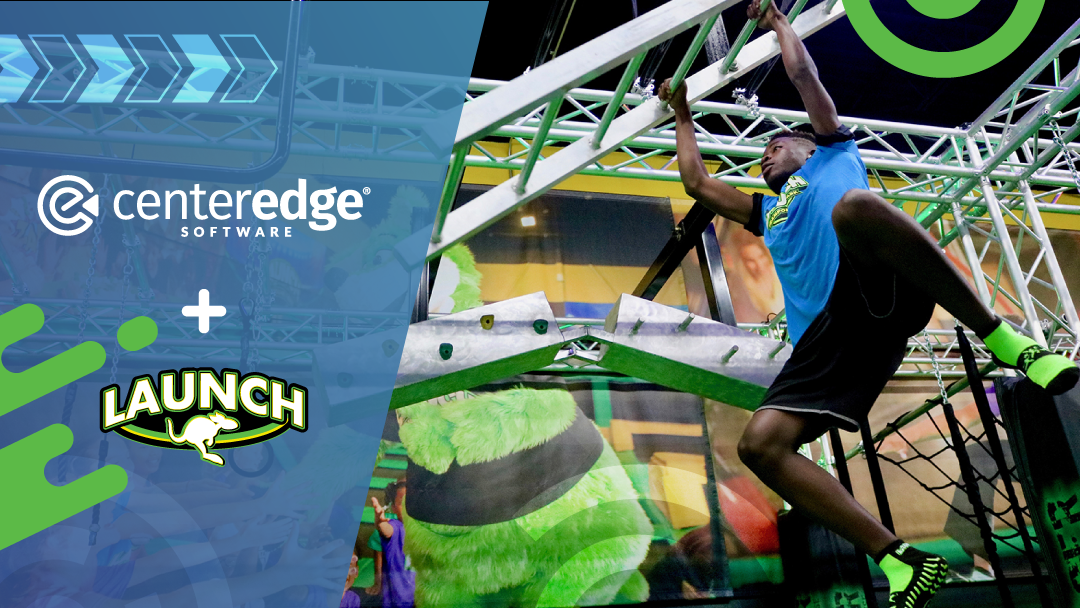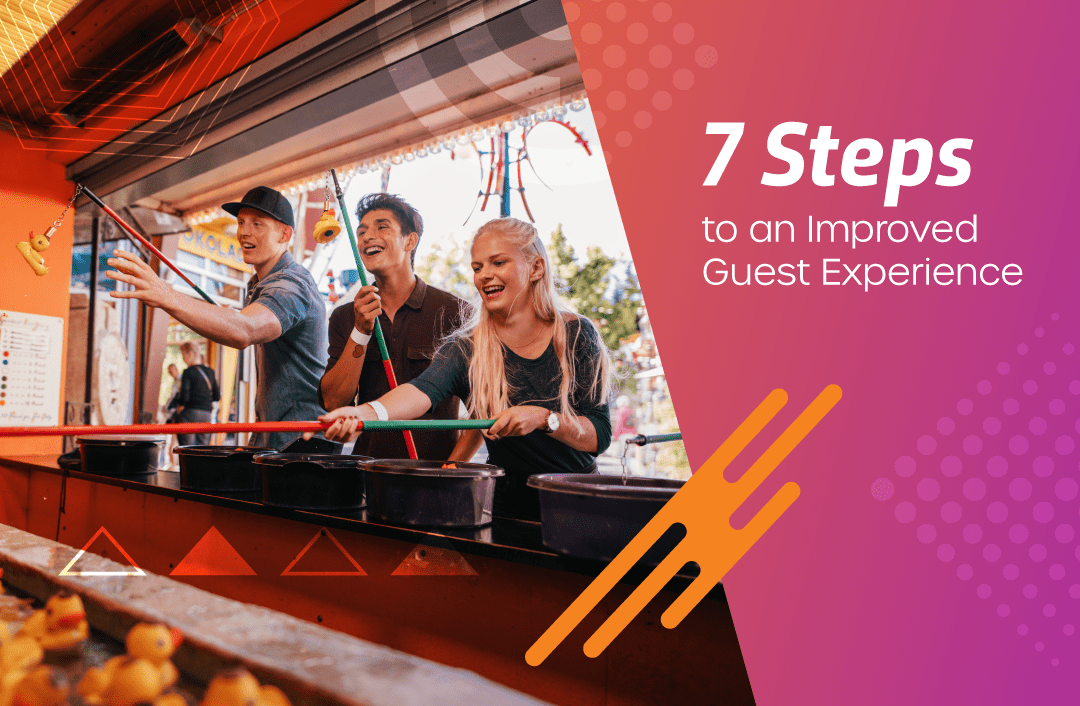You work hard to run your business and offer your guests a safe, clean and exciting place to have fun; naturally, you want it to thrive.
One important tool that successful businesses have in common is a well-performing online purchase experience.
Some of the benefits include receiving revenue in advance, shorter wait times and “sales while you sleep” – but if implemented ineffectively, your online store could be working against your business.
In our experience, there are a handful of common pitfalls many FECs, trampoline parks, and amusement and water parks still succumb to … and they could be costing your business money. Here are the top five:
1. Failure to offer a web store.
While it may seem like a no-brainer, some entertainment venues haven’t made their way into e-commerce yet, especially ones that have been in business for a long time.
Some believe that they’re offering guests a more personalized experience by inviting them to the facility or to call and speak with a team member. While personalization is always a great idea, simply failing to offer a web store doesn’t factor in what we know about current buyer behavior.
Many consumers today buy everything online, from concert tickets and groceries to furniture and virtually anything else you can think of. If you’re not giving guests the option to buy from you online, you could be losing to a competitor who is. In fact, in an informal poll that I conducted, 94% of respondents said they would opt for a different store or venue if there wasn’t an online buying option.
It’s best to offer a variety of items for purchase on your online store, including tickets, passes, gift cards, merchandise, birthday parties and upsell extras, and season passes or memberships.
Whether it’s noon or midnight, an online store allows guests the ability to buy on their own terms – and their own timelines.
2. Requiring guests to call or visit the venue to book a birthday party.
Some facilities that do have an online store fall short by not offering the ability to book a birthday party online. By requiring guests to fill out an online form request or call the facility to book their party, they miss out on easily-booked birthday party business.
Busy parents are booking when they have a spare minute – and that might be once the kids are in bed and your facility is closed. A parent with a short window of time to book a party is going to move on to the next venue on their list.
Even if you still manage to win their business by forcing them to book on your terms, you could be starting the experience on the wrong foot with a cumbersome booking process that is counterintuitive to what your guest wants.
With a few easy-to-understand party packages, a fixed party schedule and integrated event and attraction ticket scheduling, you can offer your guests a hassle-free booking experience without worrying about overbooking or complicated attraction, room or kitchen scheduling.
Providing an online experience shouldn’t mean a breakdown in personalization. Your party coordinators can review online bookings and follow up with a confirmation call thanking guests, reviewing details and offering upsells, before moving on to the next guest or completing one of their many critical party process steps.
3. A lack of a seamless online experience.
Consumers these days are more wary of online scams than ever, and they don’t trust every website that asks for their credit card number.
Your online store shouldn’t look like a completely different site compared to your main website, or guests will wonder about its legitimacy. Make sure that it integrates with your main website in terms of theme and overall look and feel to remove any purchase barriers and maintain guests’ confidence.
Even something as small as having your web store open in a new browser or tab versus staying on the user’s current one could result in session abandonment.
4. A lack of mobile responsiveness.
Buyers are using many types of devices to make purchases.
They’re buying at home with a tablet, at their desk with a desktop computer or even at the (hopefully red) stoplight. Because of this, they’re looking for an online store experience that can meet them where they are, not just in look and feel, but also in usability.
Is your online store mobile responsive, so that it refits itself onto whatever screen your guest is viewing? If not, this could be a friction point that results in irritated buyers and lost sales.
If you aren’t using the new Advantage Web, contact support@centeredgesoftware.com to discuss upgrading.*
5. Absent (or unclear) calls to action.
In his book Building a Storybrand, Donald Miller discusses that one big way businesses lose is by failing to communicate a clear call to action.
He describes an associate who has made millions of dollars simply by “buying companies, creating stronger calls to action, and then selling the company after their revenue increases.”
I recently visited an amusement park website only to find that I had to click on six different pages before I found one buried call to action in a drop-down menu several layers down.
Calls to action belong in your marketing emails, ads, website and anywhere else you present your business to your market.
Does your website have a clear “Buy Now” button high on the very first page (and every other page as well)? If not, you could be putting up a barrier between your guests and their purchase, resulting in lost revenue for your business.
The easier and more enjoyable your online process is, the better your chances at earning more advanced sales and revenue.
Web sales can become a bigger part of your business, helping you reduce line wait time, decrease the number of inbound sales staff and speed up check-in. Are you maximizing your online sales potential? Learn more at CenterEdge Online Sales and Ticketing or contact info@centeredgesoftware.com.
*Requires active CenterEdge Service Agreement and upgrading to the 2019 LTS version of CenterEdge Advantage.
Search Resources
Subscribe to Email Updates
Featured Resources
News //
CenterEdge Chosen as Exclusive Software Partner for Launch Entertainment Growth Plan

Blogs //
How to Build Better Relationships With Your Guests

Blogs //
7 Steps to an Improved Guest Experience

Blogs //
5 Features of CenterEdge’s New Integration with Semnox

Posts by Topic
- Advantage Payments (7)
- Brand Management (19)
- Business Growth (81)
- Capacity Management (2)
- CenterEdge News (30)
- Client Interviews (9)
- Credit Card Processing (3)
- Data & Reporting (12)
- Digital Signage (1)
- Event Management (20)
- Facility Management (10)
- Food & Beverage (8)
- Guest Experience (34)
- Guest Management (20)
- Holiday Season & Promotions (5)
- Industry Events (12)
- Inventory Management (1)
- Loyalty Programs (8)
- Marketing Tips (24)
- Operations (1)
- Point of Sale (10)
- Product Launch (11)
- Productivity (5)
- Profitability (35)
- Redemption Management (1)
- Sales (35)
- Season Passes (1)
- Team Training (60)
- Waivers (2)

Leave a Comment